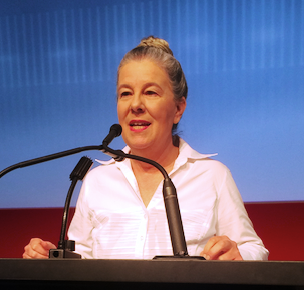- Home
- About Us
- The Team / Contact Us
- Books and Resources
- Privacy Policy
- Nonprofit Employer of Choice Award

 While things have settled down for now, across Canada, and we start to re-open, the fact remains that our sector is still way down in revenue while having increased need for services. This increase in demand is not limited to hospitals and social services. Across the spectrum, from organizations as diverse as arts to environment to sports, the relevance of these organizations remains high but the methods of delivery of those organizations is in flux.
While things have settled down for now, across Canada, and we start to re-open, the fact remains that our sector is still way down in revenue while having increased need for services. This increase in demand is not limited to hospitals and social services. Across the spectrum, from organizations as diverse as arts to environment to sports, the relevance of these organizations remains high but the methods of delivery of those organizations is in flux.
Fundraising is the first place most charities turn but many organizations have reduced staff or told staff to stop asking. Here are three tips, by position, to help keep your organization stable during this time.
Board members
Now is the time to lead by example. You role is critical to the ongoing well-being of the organization where you volunteer. Here are the three things you should do now:
1) Make a personal gift that is 1 of the 3 largest gifts you personally give to charity in 2020. The most powerful sentence you give to your organization is the ability to say "100% of our Board personally donate to our cause."
2) Put the charity in your will. A gift in your will is both an important gift and a statement of commitment to the long-term success of your charity.
3) Help with fundraising. If you are not comfortable asking for money, you can still make send thank you notes to donors, make update calls to donors, help identify potential givers, help open the door for your fundraising person.
Executive directors
Now is the time to let your fundraisers do their job. If your charity was relevant in 2019, it will be relevant again in 2023. This is not the time to stop fundraising, this is the time to make the case for why your charity is still relevant today and tomorrow.
1) Encourage your fundraising staff to continue to ask for gifts. There is good research by DonorScience that shows that charities who stopped asking in 2008/09 paid a heavy price. [Full disclosure, I am quoted in this article.]
2) Get some consulting advice. This is an unprecedented situation. The most senior experts in the sector are disproportionately clustered in consulting. Investing in even a few hours of consulting advice in major gifts, planned giving, direct response, special events, data analytics, donor stewardship or whatever area is one where you are unsure about next steps is an inexpensive investment in the well-being of your charity.
3) Do not fire your fundraising staff. Firing your staff is the equivalent of eating your seed corn as a farmer. It may get you through this year but you will be in way worse shape next year. Look at creative alternatives and work with your team. This is a decision you will regret for years because it will show up in your revenue.
Fundraisers
1) Stay current. Even if you have years and years of experience, we are in a time of great change. Attend at least one webinar, lunch and learn, read research - whatever it is that helps you stay current of flash trends in the sector. There is tons of great, quality content out there, it is your job to take advantage of it.
2) Steward. In good times and bad, stewardship is the investment that always pays off. Not only is it the right thing to do, it is also the cheapest, fastest way to retain and upgrade donors.
3) Work reasonable hours. Research by Dr. Sharilyn Hale found that fundraisers view their work as more similar to a "calling" in the traditionally religious definition of the word than a job. This is not the moment to burn yourself out working mega-overtime. If it's sunny and it's 6pm, take a walk.
These are tough times. They are also a golden chance to completely change the culture of philanthropy in your organization. Seize the opportunity.
Ann Rosenfield is a working fundraiser as well as the Editor of Hilborn Charity eNews.
Cover photo from The Gender Spectrum Collection. Image of Ann by Cynthia Armour.